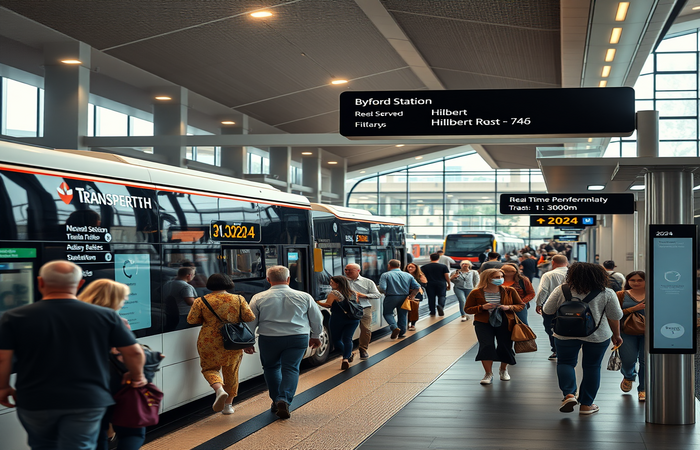Manchester Piccadilly: COVID-19’s Impact on Railway Station Management

The Impact of the COVID-19 Pandemic on Railway Station Management: A Case Study of Manchester Piccadilly
The COVID-19 pandemic presented unprecedented challenges to global transportation systems, including the railway industry. Maintaining operational efficiency while ensuring passenger and staff safety became paramount. This article examines the adaptations implemented at Manchester Piccadilly station (UK) in response to the pandemic, focusing specifically on social distancing measures, enhanced hygiene protocols, and the broader operational adjustments necessitated by the crisis. We will explore the practical implementation of these measures, analyze their effectiveness, and consider the broader implications for railway station management in the face of future health emergencies. The case study of Manchester Piccadilly offers valuable insights into best practices and potential challenges for other railway operators globally in navigating similar situations. The swift and decisive actions taken demonstrate the adaptability and resilience of the railway sector, particularly in prioritizing public health amidst significant operational disruption.
Implementing Social Distancing Measures
In response to government guidelines mandating social distancing to mitigate the spread of COVID-19, Manchester Piccadilly station implemented a comprehensive strategy. Vinyl stickers were strategically placed on the station floor, creating a grid pattern marking two-meter intervals between passengers. This visual guidance aided passengers in maintaining safe distances while queuing for tickets, accessing train information, and navigating the station. The clear and consistent placement of these markers minimized ambiguity and encouraged compliance. This approach demonstrated a proactive and visible commitment to passenger safety, directly addressing a major concern during the pandemic. The use of durable vinyl stickers also ensured longevity and adaptability to fluctuating passenger flows.
Enhanced Hygiene and Cleaning Protocols
Beyond social distancing, Manchester Piccadilly prioritized enhanced hygiene measures. The station increased the frequency and intensity of cleaning procedures, focusing on high-touch areas such as ticket machines, handrails, and seating. This proactive approach aimed to minimize the risk of virus transmission, safeguarding both passengers and station staff. The enhanced cleaning regime constituted a crucial element of the overall pandemic response, reinforcing the station’s commitment to passenger well-being and demonstrating a responsible approach to managing health risks within a high-traffic public environment. This was not merely a superficial measure; it represented a significant investment in resources and staff time to ensure a safer environment.
Operational Resilience and Staff Support
The pandemic highlighted the importance of operational resilience within the railway sector. Network Rail’s appeal to former signaling employees to return to work demonstrated a commitment to maintaining essential services despite staffing challenges. This proactive approach ensured the continued functionality of signaling systems and control centers, vital for the safe operation of trains. Moreover, the provision of free parking for NHS (National Health Service) staff and care workers underscored the station’s role in supporting essential workers during a critical time. These actions emphasized the broader societal contribution of the railway industry beyond its core transportation function.
Impact and Lessons Learned
The experience at Manchester Piccadilly demonstrates that effective pandemic response within a railway station requires a multi-faceted approach. Simple, visible measures like floor markings for social distancing can significantly improve passenger safety and compliance. Simultaneously, a heightened focus on hygiene and cleaning is crucial in mitigating the risk of transmission. Furthermore, proactive strategies to maintain operational resilience, such as appealing to former employees and supporting essential workers, are essential for safeguarding service continuity. The pandemic underscored the interconnectedness of public health, operational efficiency, and staff well-being within the railway industry. The swift and decisive response at Manchester Piccadilly offers a valuable model for other stations globally, emphasizing the importance of preparedness and proactive risk management in navigating future crises. The initiatives implemented not only addressed the immediate challenges of the pandemic but also laid the groundwork for a more resilient and adaptable railway system in the long term. The case study highlights the value of clear communication, robust operational planning, and a commitment to both passenger and staff safety as critical components of successful railway management in the face of unforeseen events.




